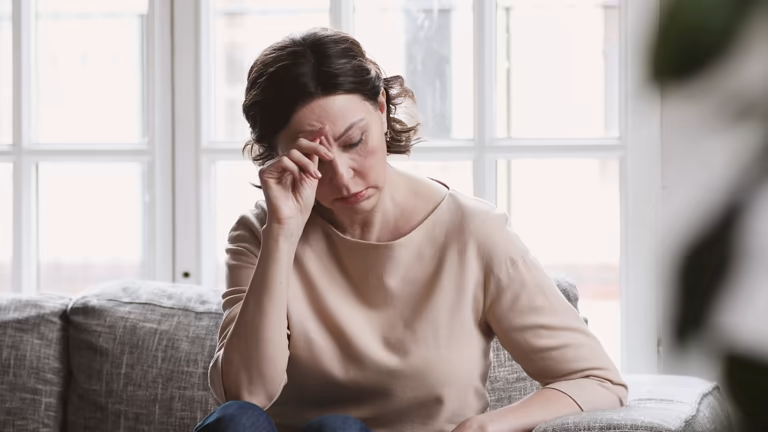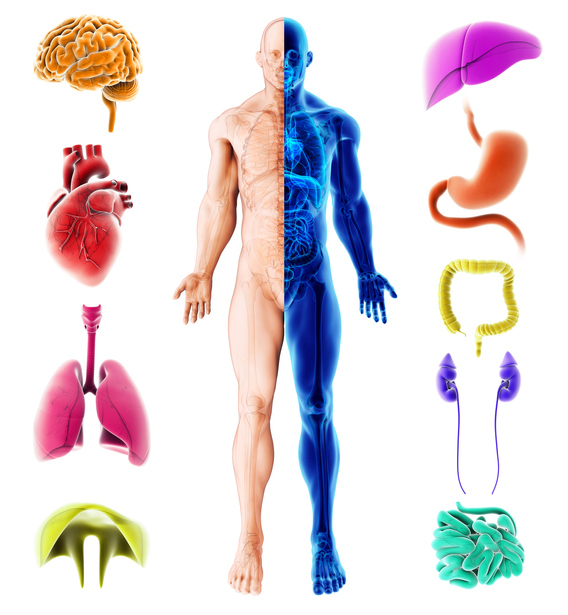For many women, menopause doesn’t come crashing into their lives with fireworks and announcements. It often arrives like a quiet guest slipping through the back door—subtle, sneaky, and at first, not entirely welcome. One missed period. Then two. Then, perhaps, a return to “normal,” only to be followed by irregular bleeding, confusing hot flashes, or a creeping sense that your body is no longer quite the same.
Menopause is a natural biological process, but one that’s notoriously misunderstood—even among women who are living through it. It isn’t a single moment, but a series of changes that unfold over years. It’s the end of menstruation, yes, but also the beginning of a new hormonal landscape. It’s the conclusion of reproductive years, yet the launchpad for a stage of life that can be full of power, reflection, freedom, and reinvention—if you know what to expect.
So what exactly happens during menopause? Why do some women glide through it while others feel as if their body has declared war? And how can you make peace with the changes it brings—physically, emotionally, and mentally? Let’s dive deep.
Understanding Menopause: More Than Just the End of Periods
To understand menopause, you have to first grasp what it is—and what it isn’t. Menopause isn’t a disease, a disorder, or a malfunction. It’s not something to be “cured.” It is, quite simply, the time in a woman’s life when her ovaries stop releasing eggs and her periods cease. Medically, menopause is defined as the absence of menstruation for 12 consecutive months. The average age of menopause in most countries hovers around 51, but it can occur anytime between 40 and 58.
But menopause isn’t a singular event. It unfolds in stages. First comes perimenopause, the transitional period that can begin several years before your final period. During this phase, estrogen and progesterone—the hormonal dynamic duo of the menstrual cycle—begin their slow and erratic decline. This leads to fluctuating periods, mood swings, and a grab-bag of symptoms that vary wildly from woman to woman.
Menopause itself is just the milestone—the 12-month mark since your last period. After that comes postmenopause, the years that follow, when hormone levels stabilize at their new low baseline and your body continues to adapt.
The hormonal shifts of menopause don’t just affect your uterus. They influence nearly every system in your body—your brain, your bones, your skin, your heart, your metabolism, and even your sense of identity. That’s why the symptoms can feel so unpredictable and far-reaching.
The Hormonal Rollercoaster: Estrogen’s Long Goodbye
Let’s talk hormones, because understanding their decline is central to understanding what’s happening during menopause. Estrogen and progesterone are the key players in your reproductive system, but they’re also deeply involved in regulating other bodily systems. Estrogen, in particular, is a multitasker. It influences the brain’s neurotransmitters, keeps the vaginal walls elastic and moist, supports skin elasticity, preserves bone density, protects the cardiovascular system, and even helps manage body fat distribution.
As menopause approaches, your ovaries begin to produce less estrogen and progesterone. But it’s not a steady taper—it’s more like a dimmer switch that flickers. One month your hormone levels are high, the next they’re scraping the floor. This hormonal chaos is what causes the infamous symptoms: hot flashes, night sweats, irritability, brain fog, and more. Your body is trying to recalibrate, to find a new hormonal equilibrium in a world where estrogen is no longer in charge.
This decline also affects your brain chemistry. Estrogen plays a role in regulating serotonin and dopamine, neurotransmitters associated with mood and well-being. That’s why anxiety and depression can creep in, even in women who have never struggled with mental health issues before.
The Heat Is Real: Why Hot Flashes Happen
Of all the menopause symptoms, hot flashes are probably the most iconic—and for many women, the most aggravating. They can strike during the day or night, with or without warning. One minute you’re fine, the next you’re sweating through your shirt, your face flushed, your heart racing. Then, just as suddenly, it passes, leaving you chilled, disoriented, and annoyed.
So what causes them? Hot flashes are the result of your brain’s thermostat—located in the hypothalamus—becoming hypersensitive to changes in body temperature. Estrogen normally helps keep that thermostat stable, but when estrogen drops, the thermostat goes haywire. Even minor fluctuations in body temperature can trigger the brain to think you’re overheating, prompting it to dilate blood vessels and make you sweat in an effort to cool down.
The frequency and severity of hot flashes vary dramatically. Some women experience a few mild episodes; others have dozens a day, sometimes for years. And while they’re not dangerous, they can be disruptive—especially when they interfere with sleep.
Night Sweats and the War on Sleep
If hot flashes are the daytime drama, night sweats are their nocturnal cousin—and they can be just as brutal. Waking up drenched in sweat, throwing off the covers, then pulling them back on when you’re suddenly freezing—it’s like a nightly game of hormonal roulette. Add to that the insomnia that often accompanies menopause, and sleep becomes elusive.
Why is sleep so deeply affected during this stage of life? It’s not just the night sweats. Falling estrogen and progesterone can directly disrupt your circadian rhythm. Progesterone has natural sedative properties, and its decline can lead to difficulty falling or staying asleep. Combine that with anxiety, restless legs, and overactive thinking, and it’s no wonder many women feel like they’re walking through life in a fog of exhaustion.
Sleep deprivation isn’t just an inconvenience—it has long-term effects on mood, memory, immunity, and overall health. That’s why managing menopause-related sleep problems is more than a matter of comfort; it’s a matter of well-being.
Mood Swings, Anxiety, and That Strange Sense of “Not Feeling Like Yourself”
It’s not uncommon for women in midlife to feel emotionally unmoored. You might cry more easily. Snap at loved ones. Feel a creeping sadness or anxiety that doesn’t quite make sense. For some, it feels like puberty in reverse—a time of mood upheaval and shifting identity.
Hormones are, once again, the culprits. Estrogen influences neurotransmitters like serotonin and dopamine, which regulate mood and emotion. When those hormone levels drop, the emotional buffer they provide can weaken, leaving you more vulnerable to mood swings and anxiety.
But there’s also a psychological element. Menopause often coincides with other life changes: children leaving home, aging parents, career transitions, or relationship shifts. This convergence can lead to an existential questioning: Who am I now, if I’m no longer defined by fertility, caregiving, or youth?
While some emotional turbulence is normal, persistent depression or anxiety should never be brushed off as “just hormones.” If you’re struggling, seeking support from a therapist or doctor is a sign of strength, not weakness.
The Shifting Landscape of Sex and Intimacy
Menopause can bring dramatic changes to your sex life—and not always in the ways you expect. Some women feel liberated by the absence of periods and the end of pregnancy worries. Others find that desire wanes, arousal becomes more difficult, and sex becomes painful.
These changes have physiological roots. With less estrogen, vaginal tissues become thinner, drier, and less elastic—a condition called vaginal atrophy. Blood flow decreases, and natural lubrication may decline, making intercourse uncomfortable or even unbearable.
Libido can also dip, due to hormonal shifts, fatigue, body image issues, or emotional stress. But menopause doesn’t have to mean the end of sexual pleasure. With communication, lubrication, hormone therapy or local estrogen treatments, and even sex therapy, many women find satisfying sex lives in their postmenopausal years.
What changes is not the capacity for intimacy—but the context. Midlife sexuality is often richer, more emotionally connected, and less performance-driven. It may take a little more intention and creativity, but it can also be incredibly rewarding.
Weight Gain, Body Changes, and the Search for a New Normal
Many women notice weight gain during menopause—particularly around the abdomen. This isn’t just about lifestyle or willpower. The drop in estrogen alters how your body stores fat. Your metabolism slows. Muscle mass declines. And the stress hormone cortisol, often elevated during menopause, can contribute to fat accumulation, especially visceral fat that wraps around internal organs.
It’s not just about weight. Skin becomes drier. Hair may thin. Joints may ache. Your body feels unfamiliar, and it’s easy to become frustrated with these changes.
But midlife doesn’t have to mean surrendering to decline. Strength training, good nutrition, and mindful movement can go a long way toward maintaining vitality. Instead of focusing solely on the scale, focus on how you feel—strong, flexible, energetic. This is a time to redefine beauty and health on your own terms, not according to outdated cultural standards.
Bones, Hearts, and Long-Term Health Considerations
Menopause may feel like an immediate battle with hot flashes and insomnia, but it also has longer-term implications. Estrogen plays a protective role in your body—especially when it comes to bones and heart health.
After menopause, the rate of bone loss accelerates, increasing the risk of osteoporosis and fractures. Calcium, vitamin D, and resistance training are crucial tools to counteract this decline. So are bone density tests and, in some cases, medication.
The heart is another concern. Estrogen helps maintain the flexibility of blood vessels and regulates cholesterol levels. When estrogen drops, the risk of heart disease rises. That’s why postmenopausal women are more susceptible to cardiovascular issues than premenopausal women. Monitoring your blood pressure, cholesterol, and lifestyle choices becomes increasingly important.
Taking care of your long-term health means being proactive, informed, and unafraid to advocate for your needs in the doctor’s office.
Hormone Therapy: Risks, Rewards, and Reinvention
Hormone Replacement Therapy (HRT) was once widely prescribed for menopausal symptoms—until the early 2000s, when a large study suggested potential risks, including breast cancer and stroke. But subsequent research has refined our understanding. For many healthy women under 60 or within 10 years of menopause, HRT can offer powerful relief from symptoms and protection against bone loss and heart disease.
There’s no one-size-fits-all answer. Some women swear by HRT; others prefer to go the natural route. What matters most is that you’re informed and that your treatment plan is tailored to your unique history and health profile.
Beyond HRT, there are non-hormonal options, including antidepressants for mood and hot flashes, medications for osteoporosis, and natural supplements that may help (though their effectiveness can vary).
The Emotional Rebirth: Finding Power in the Pause
Menopause is often painted as an ending, a loss. But for many women, it’s a beginning—a shedding of expectations, a redefinition of self. Freed from the hormonal cycles of fertility and the roles that defined their earlier years, women in midlife often discover new confidence, creativity, and clarity.
This is the time when many write books, launch businesses, run marathons, or return to passions they once put aside. The pause that menopause brings is not an erasure of identity—it’s a space to step into your full power.
Yes, the transition is messy. Yes, it requires adjustment. But it’s also an invitation to deepen your relationship with yourself, to embrace your body with compassion, and to own your story in a whole new way.
Aging on Your Own Terms: Owning the Narrative
We live in a culture that often sees aging in women as something to be feared or fought. Wrinkles are “bad,” gray hair must be “covered,” and menopause is whispered about like a shameful secret. But what if we flipped the script?
What if we talked openly about the changes of midlife? What if we celebrated the resilience of women navigating menopause with grace, humor, and honesty? What if we recognized this time not as a decline, but as a rebirth?
There’s wisdom in your hot flashes, courage in your mood swings, and beauty in every scar and story your body holds. Menopause is not the end of youth—it’s the beginning of authenticity.
Conclusion: You Are Not Alone in This Journey
If you’re in the throes of menopause, know this: You are not broken. You are not crazy. You are not alone. You are undergoing one of the most powerful transitions of your life—and you have the strength, the smarts, and the soul to navigate it.
Speak up. Ask questions. Connect with other women. Advocate for your health. Explore your options. Embrace your evolution.
Menopause isn’t something to survive—it’s something to understand, honor, and even celebrate. Because on the other side of the fog is a woman who knows herself deeply, stands in her truth, and is absolutely, unapologetically unstoppable.






